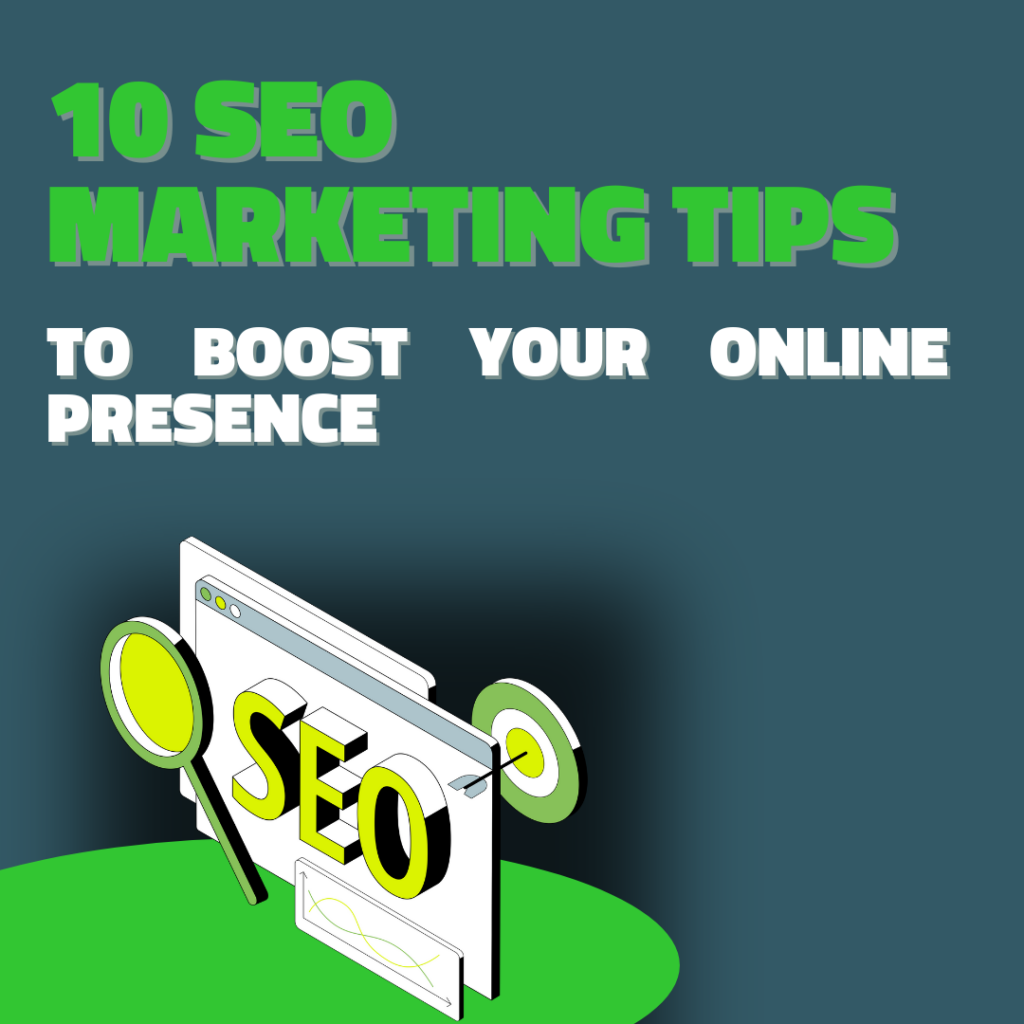
Search engine optimization is the practice of improving a website’s visibility and ranking in search engine results pages (SERPs) for relevant keywords. The goal is to attract more traffic organically to your website, meaning users who find your site without directly entering the URL or clicking on a paid ad.
While the SEO landscape is constantly evolving, the following 10 SEO marketing tips can help you to navigate it effectively, boosting your online presence and driving success:
Before optimizing your website, conduct thorough keyword research. Identify terms your target audience uses to find products or services like yours. Leverage tools like Google Keyword Planner or industry giants like SEMrush and Ahrefs to discover high-volume keywords with low competition. Integrate these keywords throughout your content, and also include titles, headings, meta descriptions, and body text.
Optimize various elements within your website to boost its search engine ranking. This includes crafting compelling title tags and meta descriptions that entice users to click, along with optimizing headings (H1, H2, H3) and image alt tags. Remember, well-structured content with relevant keywords not only improves readability but also helps search engines understand your content’s context.
Creating content is KEY to improving your SEO. Craft informative, engaging, and valuable content tailored to your target audience’s needs and interests. Whether it’s blog posts, infographics, videos, or podcasts, prioritize content that educates, entertains, or solves problems for your audience. High-quality content not only attracts visitors but also naturally encourages backlinks from other websites, significantly boosting your search engine ranking.
With mobile devices dominating internet usage, optimizing your website for them is no longer optional. Ensure your website is mobile-friendly and responsive, performing seamlessly to different screen sizes and devices. As mobile-friendliness is now a Google ranking factor, optimizing for mobile not only enhances user experience but also increases your chances of ranking higher in search results.
Website speed is crucial for both user experience and search engine rankings. A slow-loading website leads to frustration, higher bounce rates, and lower conversion rates. Utilize tools like Google PageSpeed Insights to analyze your website’s speed and identify areas for improvement. Consider optimizing images, minifying code, implementing browser caching, and investing in a reliable hosting provider to enhance your website’s speed and performance.
If your business caters to a specific location, optimize for local SEO to attract nearby customers. Claim and optimize your Google My Business listing, ensuring consistent and accurate details across all online platforms. Create localized content and target location-based keywords to improve your visibility in local search results.
User experience (UX) plays a vital role in both SEO and conversion rates. A website with a seamless user experience is more likely to rank higher and retain visitors. Ensure your website is easy to navigate, with clear calls to action (CTAs) and a clean, uncluttered design. Optimize your website’s layout for readability and accessibility, and ensure fast-loading pages to minimize bounce rates and keep users engaged.
Backlinks, or inbound links from other websites, are crucial for establishing your website’s authority and credibility in the eyes of search engines. Focus on earning high-quality backlinks from reputable and relevant websites within your industry. This can be achieved through guest blogging, influencer outreach, content partnerships, and creating link-worthy content that naturally attracts backlinks. Avoid black hat tactics like buying links, as they can result in penalties from search engines.
As SEO is constantly evolving, search engines like Google regularly updating their algorithms to provide more relevant and accurate search results. Follow industry blogs, attend webinars, and participate in forums to keep up-to-date with the latest trends and best practices in SEO. By staying ahead of the curve, you can ensure your website remains competitive.
Finally, it’s crucial to track and analyze your SEO performance to identify areas for improvement and measure your success. Utilize various tools like Google Analytics, Google Search Console, and SEO analytics platforms to monitor key metrics such as organic traffic, keyword rankings, conversion rates, and bounce rates. Identify trends, patterns, and areas of opportunity, and use this data to refine your SEO strategies and achieve even better results over time.
SEO doesn’t have to be daunting. Need more help understanding how to maximize your SEO efforts? Schedule a call today!